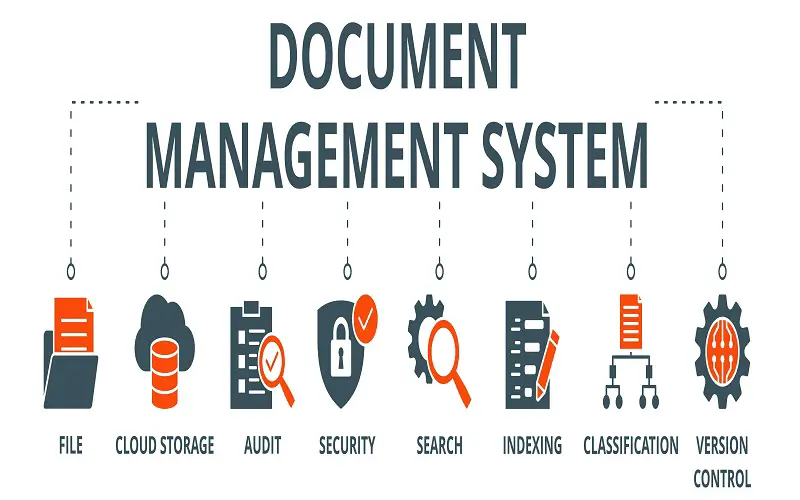In today’s digital age, efficiency is the key to success. Companies are constantly seeking ways to streamline their operations and enhance productivity. With the advent of digital technology, Document Management Systems (DMS) have emerged as a powerful tool to elevate workplace output.
But how exactly can a DMS transform your business operations and give you the competitive edge you need? This article will dive into the numerous benefits of implementing a DMS and reveal how this comprehensive tool can revolutionize the way you work.
1. The Power Of Data Extraction
Data extraction from documents is a game-changer in the realm of document management. It automates the process of identifying and capturing information from various types of documents. This feature saves time and ensures accuracy, eliminating the risk of human error. Imagine the hours saved from manually sifting through piles of documents and the potential for increased productivity that this time saving represents.
2. Streamlining Workflow With DMS
A well-implemented DMS can streamline organizational workflow, allowing easy storage, retrieval, and sharing of documents. This means less time spent searching for documents and more time for tasks that truly matter. Moreover, this can automate certain tasks, such as approval and leave management, further optimizing processes.
In addition to streamlining workflows, a DMS also greatly impacts team dynamics.
3. Enhancing Collaboration And Communication
Let’s consider another significant advantage of DMS—enhanced collaboration and communication. With documents stored in a centralized system, team members can easily access and collaborate on them, regardless of their geographical location. This fosters a culture of transparency and teamwork, which is crucial for a productive workplace.
4. Securing Sensitive Information
Safeguarding sensitive information is of paramount importance. A robust DMS provides various security features, such as access control and encryption, protecting your documents from unauthorized access and potential data breaches.
By ensuring that confidential data remains secure, your company can maintain its reputation and comply with industry-specific regulations.
5. Reducing Environmental Impact
It’s worth noting that DMS also contributes to reducing a company’s environmental impact. By transitioning to a paperless office, companies can significantly reduce their carbon footprint, aligning their operations with sustainable practices.

While DMS helps reduce environmental impact, it also plays a crucial role in maintaining compliance with industry regulations.
6. Boosting Compliance With Regulations
A DMS can also help businesses comply with regulations. Many industries, like healthcare and finance, have strict rules for document handling. A DMS can automate compliance tasks, reducing the risk of penalties and enhancing your company’s reputation.
7. Facilitating Disaster Recovery
Disaster recovery is another crucial aspect of document management. In the event of a natural disaster, system failure, or data breach, a DMS ensures that your documents aren’t lost forever. It provides backup and recovery features, giving you peace of mind and ensuring business continuity. By addressing disaster recovery, a DMS helps maintain the availability of your company’s information and minimize downtime during unforeseen events.
8. Improving Customer Service
Next, let’s consider the impact of DMS on customer service. With quick access to customer documents, your team can respond to inquiries faster and more accurately. This improves customer satisfaction, boosting your company’s reputation and bottom line.
9. Enabling Scalability
As your business grows, so does the volume of your documents. A DMS can easily scale to accommodate this growth, ensuring that your document management remains efficient and manageable. This adaptability is a key advantage of DMS, making it a valuable asset for businesses of all sizes.
Not only does a DMS support scalability, but it also seamlessly integrates with other systems within your organization.
10. Integrating With Other Systems
A DMS isn’t a standalone system. It can integrate with other software, such as Customer Relationship Management (CRM) and Enterprise Resource Planning (ERP) systems. This integration enhances data consistency and reduces the need for duplicate data entry, further amplifying work capacity.
11. Promoting Remote Work
Remote work is becoming increasingly common. A DMS supports this trend by allowing employees to access documents from anywhere at any time. This flexibility can improve employee satisfaction and strengthen productivity, contributing to your company’s success.
12. Reducing Costs
It’s also important to note that a DMS can help reduce costs. Eliminating the need for physical storage and reducing paper usage can lead to significant cost savings. Additionally, improved effectiveness and elevated output can result in lower operational costs.
13. Fostering Innovation And Creativity
Adding another dimension to our discussion, a DMS can foster workplace innovation and creativity. Employees can focus more on creative and strategic tasks by reducing the time and effort spent on mundane tasks like document retrieval and data entry. This shift can lead to the development of innovative solutions and ideas, driving the growth and success of your business.
14. Supporting Decision-Making Processes
A DMS isn’t just about managing documents; it’s also a valuable tool for decision-making. Such systems can easily access and analyze data from various documents, providing valuable insights for strategic decisions. This data-driven approach can enhance the accuracy and effectiveness of your decision-making processes, leading to better business outcomes.
15. Enhancing Training And Onboarding
Now, let’s consider the role of a DMS in training and onboarding. This system can easily create, store, and share training materials and manuals. New employees can access these resources at their convenience, speeding up the onboarding process and ensuring they’re well-equipped to perform their roles.
16. Promoting Accountability And Transparency
Lastly, this can promote accountability and transparency in your organization. With features like version control and audit trails, you can track document changes and identify who made them. This transparency can deter unethical behavior and ensure everyone is accountable for their actions.
Conclusion
A Document Management System is more than just a tool for managing documents. It’s a comprehensive solution that can transform various aspects of your business, from compliance and disaster recovery to customer service and scalability. By embracing a DMS, you’re not just investing in a system but in the future success of your business.

